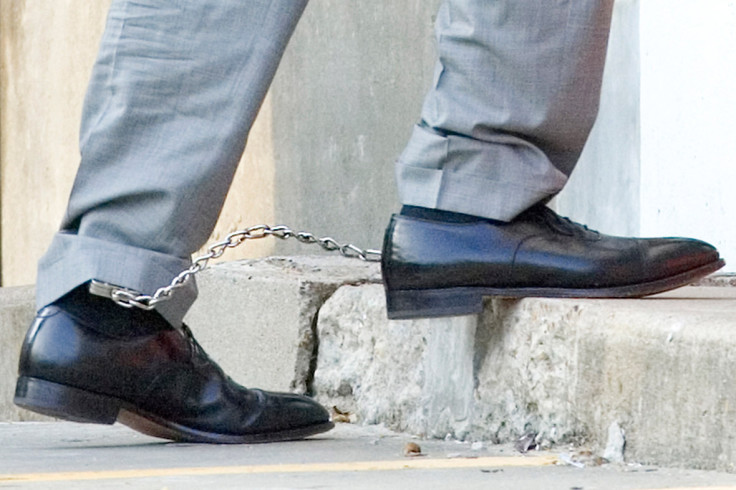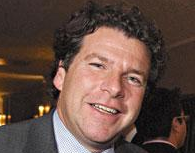White Collar Crime: How to Survive the Descent from the C-Suite to a Prison Cell

The criminal world appears to be changing as tighter controls are imposed within the finance sector together with the public's determination to see the rise of common decency, responsibility and above all accountability.
As a result, increasing numbers of people who would not normally be considered criminal – by themselves or others - find themselves facing the concept of imprisonment and the subsequent lifetime label of "ex-offender". Should a person prepare for this and should the employer have a duty of care to bring attention to what may lay ahead should temptation to 'win at all costs' present itself?
At Prison Consultants the comment that we receive most from the legal sector (which you might think would embrace this concept most readily) is 'nice idea but what's the point?'. It's a fair question, particularly from a profession that accepts change only guardedly. Prison consultancy can be deemed to be to Law what acupuncturists were to the medical profession 30 years ago - slightly left of field and something to be approached with extreme caution. Yet these days, GP's refer patients to acupuncturists and some have qualified to practice themselves!
The public perception of an offender in prison still harks back the archetypal hard-nosed villain who has spent a lifetime dodging and fighting the law. The stereotype never changes, whether in the books of Dickens, 1970 cop shows or today's more sophisticated dramas. Those who chose villainy as a career path are assumed to be well-schooled in the art of prison existence and if anyone else is crazy enough to end up with them, 'why should we care?'.
The fact is that the prison population is changing and prison now has a growing percentage of 'normal' people contained within the walls. White collar crime is on the up, recent crime statistics reported an overall decrease in reported crime for 2013 by 15% however there was an increase in fraud by 25%.
It will not have escaped anyone's notice that the external auditing required by banks in the wake of the banking crash of 2008 has resulted in a number of arrests and charges relating to various fixing scandals and other banking shenanigans.

Banking and other institutional practices have now come under close scrutiny with the government's propensity to crack down on tax evasion and to generally tidy up industries that practised sleazy and repugnant practices and to label their activities criminal. Accountability and responsibility are the new buzz words. The advances of DNA, CCTV and other technology have forced the traditional robber or 'physical' villain into a world of cybercrime. Bank robberies are now being effected by computer hackers thus transferring a violent crime into white collar.
This leads to the demographic of the new criminal. When focussing on the banking sector, we have well educated individuals living life in upmarket suburbia, benefiting from an above average fiscal existence.
These are driven individuals who compete in a world where last year's results need to be surpassed to placate an ever demanding boss, parent company and shareholders. This is coupled with personal peer pressure, where a person's success is monitored by the size of mortgage, the marque of car that's being driven, the watch that's being worn, where the kids are schooled and the number of luxury holidays taken per year. It is a world of entrapment.
Increasingly, the people who fall foul of the law are individuals who've led a relative 9 to 5 (or probably nearer 8 to 8) existence using methods that were well worn but have now become frowned upon and indeed criminalised. The result is a 'normal' person to whom the world of criminality was never on the radar suddenly being arrested, suspended, charged, paraded through the media and thrust into the gladiatorial criminal legal arena.
This is not to be an apologist for white collar offenders. Usually, it is fair to say that they should have known better. But without adequate training, support and education, how many busy and stressed financial services providers will be tempted to regard new rules as so much political correctness, and stick to the tried and tested ways of doing business?
Their fate will ultimately be decided by a panel of 12 jurors who may have little understanding of the complexity of fact about to be presented to them. Then there is the prospect of prison, disgrace and a potential destruction of lifestyle for themselves and their families.
This demographic exists and survives by gaining knowledge, being ahead of the game and above all being in control. But now they are in a world that they cannot control and facing the dehumanising world of prison.

A great deal of recent press coverage displays the prison world as one of danger and squalor where the rules are rarely explained but punishment is dispensed summarily for breaking them. The latest stats are shocking. Within prison in 2013, there were four alleged homicides – the highest number since 1998 – and 70 apparently self-inflicted deaths, more than at any time since 2008. There were 199 deaths in prisons in England and Wales in total.
So the question at the beginning was 'what is the point?' The point is that if prison is a calculable possibility or inevitability, then why not gain the knowledge to survive the experience, why not try to come to terms with what may happen? Why not prepare for the worse whilst at the same time hoping for the best? It is not a defeatist attitude; it is purely preparation. When facing a world of unknowns then surely the old adage 'knowledge is power' is pertinent.
The questions that demand urgent answers are "What is prison, how do I progress?", "how do I gain privileges in order to make life easy for myself and my family?", "what can I expect from other prisoners?", "what can I expect from the prison staff?" and the inevitable "are the showers really safe?"

Then there are the family and stake holders left behind. They become victims and the suffering tends to be greater for them than the convicted. Confusion and despair can encourage family break-up which in turn brings about a sentence that extends far beyond the term dispensed by the judge.
Criminologists explain that when it comes to white collar fraud the start of the destructive spiral begins with the principle of 'I got away with it once I'll get away with it again' or 'I am not a real criminal, they are not after me'.
Banks and brokerages spend fortunes to show that their compliance systems have improved. And regulators then fine them huge fortunes to show that they have not. But is this not closing the stable door once the horse has bolted? Could it be argued that institutions have a duty of care to support their employees and to highlight the consequence of excessive greed?
Of course analysts can pore over the stats and figures to spot fluctuations that may highlight 'strange' behaviour, but the bottom line is that unless those who have the ability to offend are coldly brought to mind of the consequences then little will change. It is the culture that needs addressing. Systems may become ever more complicated and fees charged by external auditors ever greater. But the simple fact is that prison is a harsh reality. We believe that educating people about the pure harshness of what may lie ahead, for them and their loved ones, is the best chance to prevent the mistakes that lead to prison.
Steve Dagworthy is Senior Consultant at Prison Consultants. He previously served half a six-year jail sentence for what was described in court as a £3m Ponzi scheme.
Prison Consultants can be contacted for a free confidential discussion on: +44 (0) 20 7717 5564
© Copyright IBTimes 2025. All rights reserved.





















